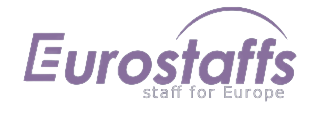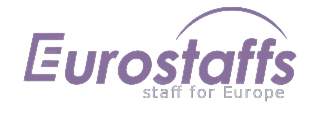How to Apply for Higher Studies in Europe
How to Apply for Higher Studies in Europe
Introduction
Studying in Europe is a dream for many students worldwide.
With top-ranked universities, affordable education, and excellent career
opportunities, Europe attracts thousands of international students every year.
However, the application process can seem overwhelming if you don’t know where
to start.
This guide will walk you through the entire process ofapplying for higher education in Europe, from choosing the right university
to securing a student visa. Whether you’re looking for scholarships, need help
with application documents, or want to understand visa requirements, this blog
has got you covered.
If you’re serious about studying in Europe, keep reading to
make your journey smoother and more successful!
Step-by-Step Guide to Applying for Higher Studies in
Europe
1. Choose the Right University & Course
Before applying, you need to decide on the country,
university, and course that best fit your academic and career goals.
Consider the following factors:
✅ University Ranking &
Reputation
✅
Tuition Fees & Cost of Living
✅
Scholarship Availability
✅
Language of Instruction (English or Local Language)
Some of the most popular study destinations in Europe
include:
- Germany:
TU Munich, Heidelberg University
- France:
Sorbonne University, INSA Lyon
- Netherlands:
Utrecht University, TU Delft
💡 Tip: Check
university websites for eligibility criteria, application deadlines, and
admission requirements before applying.
2. Prepare the Necessary Documents
Each university may have different document requirements,
but here are some commonly required documents for European universities:
📌 Academic transcripts
& certificates
📌
English language proficiency test (IELTS, TOEFL, etc.)
📌
Motivation letter (explaining why you want to study there)
📌
Recommendation letters (from teachers or employers)
📌
Updated CV/Resume
📌
Valid passport & ID proof
💡 Tip: Some
universities also require proof of work experience or research proposals for
master’s and PhD programs.
3. Submit Your Application
✅ Step 1: Visit the
university’s official website and complete the application form.
✅
Step 2: Upload all required documents.
✅
Step 3: Pay the application fee (if required).
✅
Step 4: Wait for the admission decision.
💡 Important: Some
countries require applications to be submitted through centralized platforms:
- Germany:
Uni-Assist
- France:
Campus France
- UK:
UCAS
Once you receive an offer letter, you can proceed
with your visa application.
4. Apply for a Student Visa
After securing admission, the next step is obtaining a student
visa. The visa requirements vary by country, but in general, you will need:
📌 University admission
letter
📌
Proof of financial stability (Bank Statement)
📌
Health insurance
📌
Accommodation proof
📌
Visa application fee payment receipt
🎯 Where to apply?
You need to apply for a student visa at the embassy or consulate of your
chosen country. Processing times can vary, so apply as early as possible!
💡 Tip: Some
countries allow you to work part-time on a student visa. Check the visa
conditions before traveling.
5. Find Scholarships & Financial Aid
Many European countries offer scholarships for
international students. Some of the most popular ones include:
🎓 Erasmus Mundus
Scholarship (Europe-wide)
🎓
DAAD Scholarship (Germany)
🎓
Eiffel Excellence Scholarship (France)
🎓
Holland Scholarship (Netherlands)
💡 Tip: Scholarships
are competitive, so submit a strong application with a well-written motivation
letter and excellent academic records.
6. What If Your Visa Gets Rejected?
If your visa application is rejected, don’t panic! Here’s
what you should do:
✅ Find out the reason for
rejection from the embassy.
✅
Correct any mistakes and reapply.
✅
Provide additional documents if required.
✅
Seek legal assistance if necessary.
💡 Tip: Common
reasons for rejection include insufficient funds, incomplete documents, or weak
justification for studying in that country.
Conclusion
Applying for higher studies in Europe may seem complicated,
but with the right guidance, it can be a smooth process. By carefully selecting
a university, preparing strong application documents, and following the visa
guidelines, you can successfully start your education in Europe.
If you need expert guidance, Euro Staff is here to
help you through the entire process—from university selection to visa
applications.
📩 Need help with your
application? Contact us today!
📞
Call/WhatsApp: +8801775712640
🔗
www.eurostaffs.org

 French
French
 Arabic
Arabic
 English
English



